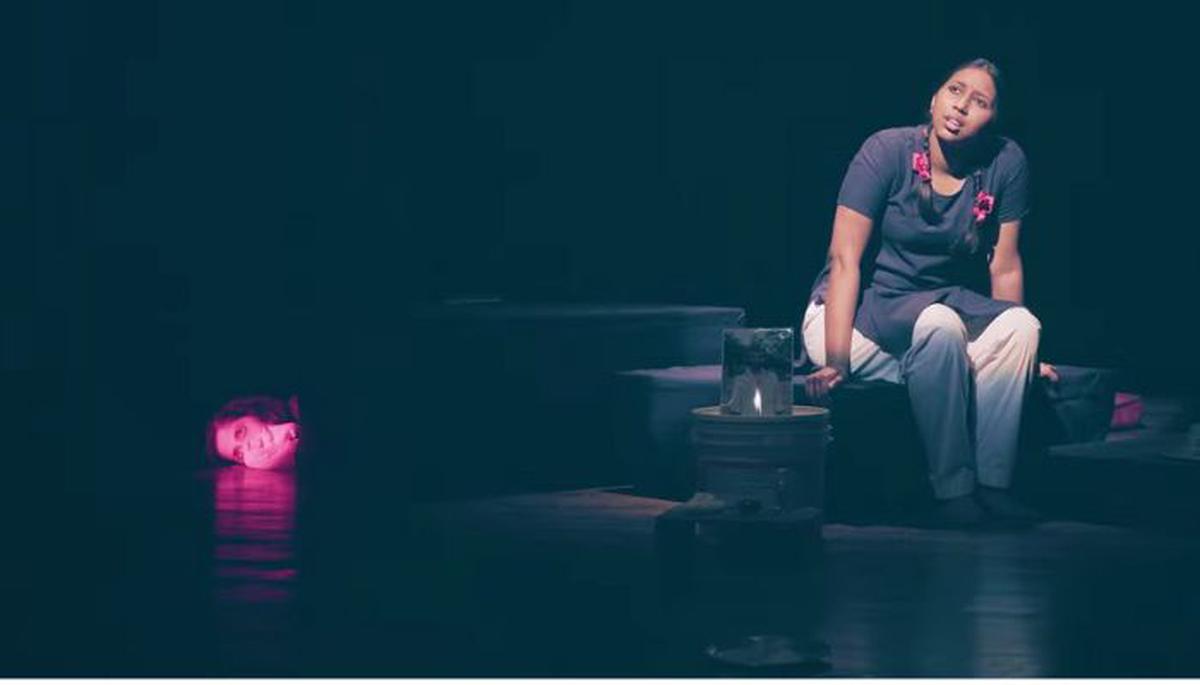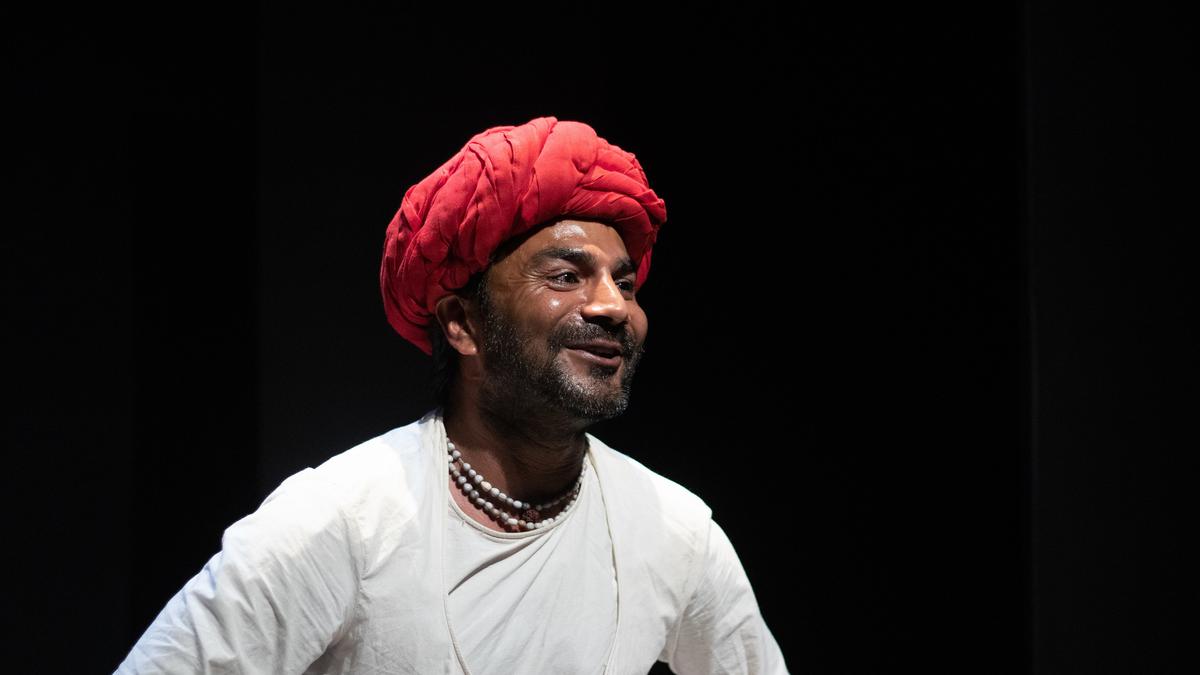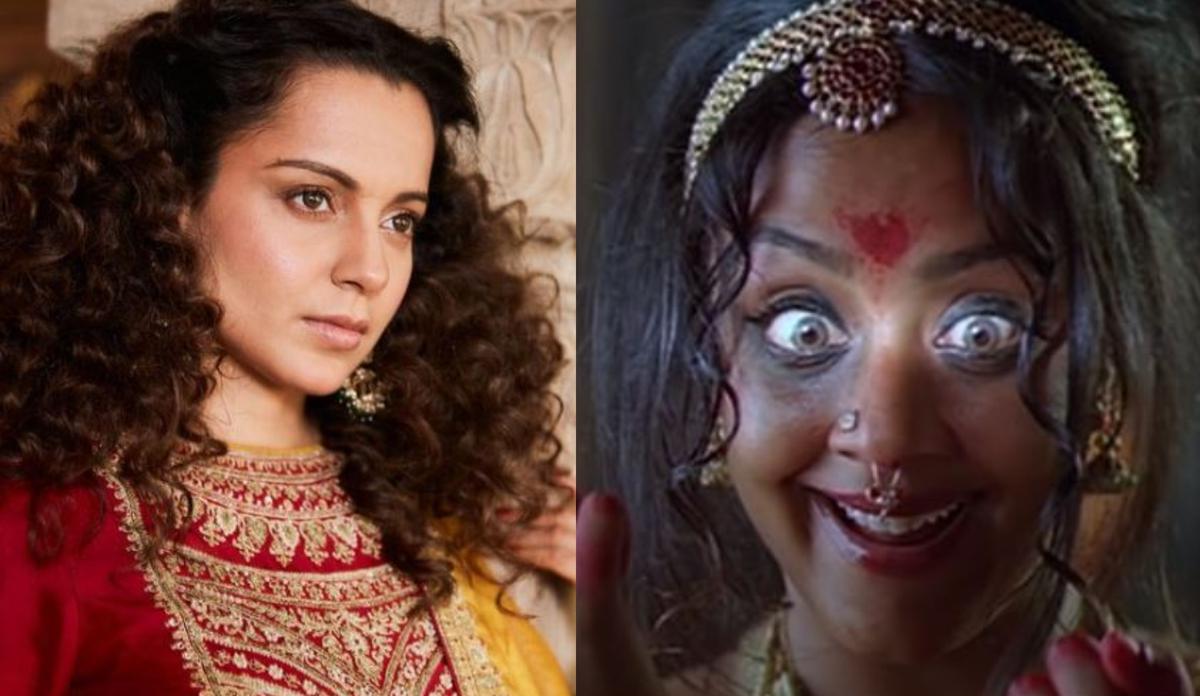A scene from Hunkaro by Mohit Takalkar
| Photo Credit: SPECIAL ARRANGEMENT
With the pandemic receding to the background, Delhi is getting its cultural mojo back. Next week, the Mahindra Excellence in Theatre Awards (META) festival will return with a diverse repertoire of plays from across the country.
The festival follows an inclusive approach. Jury member Neelam Mansingh Chowdhury says, “We need art to wake us. To wake that part of our life that has got calcified.”
Director Srinivas Beesetty’s Hindi play Namak, which opens the festival, promises to do exactly that as it turns the spotlight on the hardships faced by the poor during the lockdown. “It is the fight for the survival of a single mother and her two daughters as they discover that the city that they built and served had turned its back on them,” says Beesetty who has adapted it from Abhishek Majumdar’s English play Salt. He believed the play would sound satirical to the audience but for the protagonists, it is very matter-of-fact. “They have devised ways to fight hunger. While the mother tells stories while feeding the daughters to prolong the process of eating, the youngest daughter gives up her portion in the game so that the mother could have something to eat.”
Mohit Takalkar’s Hunkaro (Hindi, Marwari, Haryanvi) also captures three tales of hope, guilt, and survival during the pandemic. In Giddh, he follows Amar, who like thousands of others, takes a long walk home. He has no food, water or money but is hopeful that he will eventually be home. Along the way, he meets a strange creature — half-vulture-half crow — who becomes his fellow traveller. Takalkar says, the crow symbolises survival and the vulture is a metaphor for death.
In Maai, he tells the tale of two brothers who leave their physically-challenged mother in the city when the lockdown is declared. As they head to their village, one of them is taken over by guilt but the other one keeps hope.

Namak for META
| Photo Credit:
SPECIAL AARANGEMENT
Directed by Victor Thoudam and Bimal Subedi, The Departed Dawn is a non-verbal performance that is influenced by the global refugee crisis, inspired by the plight of Lhotsampas, the Nepali-speaking Bhutanese refugees. In the directors’ note, Thoudam and Subedi say, the performance attempts to explore the correlation between the displaced body and space. “The play is a creative response to a time when we are constantly living in an environment where violence has become a normal and regular phenomenon.”
For actor-director, Savita Kumari “personal is political” as the National School of Drama graduate, in her solo English play Notion(s): In Between You & Me, explores how social notions are formed. The Haryana girl says the play is her perspective on identity and gender stereotypes accrued over the years.
A panel discussion on ‘The Politics of Theatre: Is it just nautanki? was held at the curtain raiser event recently. Bishnupriya Dutt, associate professor at the School of Arts and Aesthetics, Jawaharlal Nehru University, described theatre as crucial means to express dissent. “It should be viewed beyond just entertainment because theatre lets artists explore contrasting and conflicting ideologies, and create a space to engage with the diverse aesthetics of it,” she says. Rising above the ritualistic framework of politics in theatre, Dutt advocates r artistic freedom to explore topics and issues that theatre practitioners fiercely believe in.
Delhi-based theatre director and artistic director of Black Box Okhla, Nikhil Mehta believes politics and entertainment can go hand in hand. “You always have to go inside to find something truthful and if it is sensational, it will be truthful sensationalism. Why should we not make theatre entertaining and fun? We have a collective responsibility towards arts while fulfilling the greater responsibility of being true to ourselves,” he says.
There were 400 submissions for the festival this year and most of them had a political theme, representing a social issue in some part of the country. “Suddenly, it seems the days of farcical theatre have disappeared,” says festival producer Sanjoy K Roy.
(META is from March 23 to March 29; At Kamani Auditorium and Shri Ram Centre, Mandi House; 6pm and 8pm; Tickets are available on BookMyShow)






